If you’re in the grocery business, staying stocked is more important than ever these days.
But if you also cater to one of Metro Vancouver’s many immigrant communities, you have a special responsibility to comfort customers with the goods they miss from home.
I once toured Vancouver’s bygone Killarney Market — a mix of very Hispanic, European, Southeast Asian and Canadian all at once — with one of the brothers who owned it, Tito Chiang, who taught me what it takes to play that important role.
You have to do more than just be a clerk or cashier, often helping seniors who can’t carry everything to their car. (Chiang used to drop his keys while interviewing potential staff to test their helpfulness.)
You have to know your community, stocking cultural specialties like queso or longanisa, but also be bold enough to give new products a try.
You have to stay on your toes. If there are, say, no yams from Ghana, you have to find them elsewhere.
Grocery curve balls, such as the lack of flights from India right now, don’t faze pros like Ravinder Narula, who owns the Sabzi Mandi stores in Surrey and beyond and has been in the local supermarket business for almost 30 years.
“We do have substitutes, so it’s still OK,” Narula said serenely on a recent Wednesday. He’s started buying okra from California, an item his Indian customers simply must have.
According to the most recent census, immigrants and their children make up 69.7 per cent of the Metro Vancouver population, meaning that the majority of residents likely cook or were raised on some other cuisine than mainstream Canadian.
These households make the region a place where alternatives to the national grocery giants can thrive. Favourites like Assi, Fruiticana, 88 Supermarket and Persia Foods make global cuisine local.
But it’s not the easiest thing to stock products most people would never be able to find in the “ethnic aisle” of the big box stores, especially in a pandemic.
From Vancouver to Langley, grocers to local chains, we talked to five Metro Vancouver markets about serving customers in the time of COVID-19, some with the help of painter’s tape, office printers and good old customer service.
Los Guerreros
Addresses:#102-3317 Kingsway, Vancouver
#20489 Fraser Hwy., Langley City
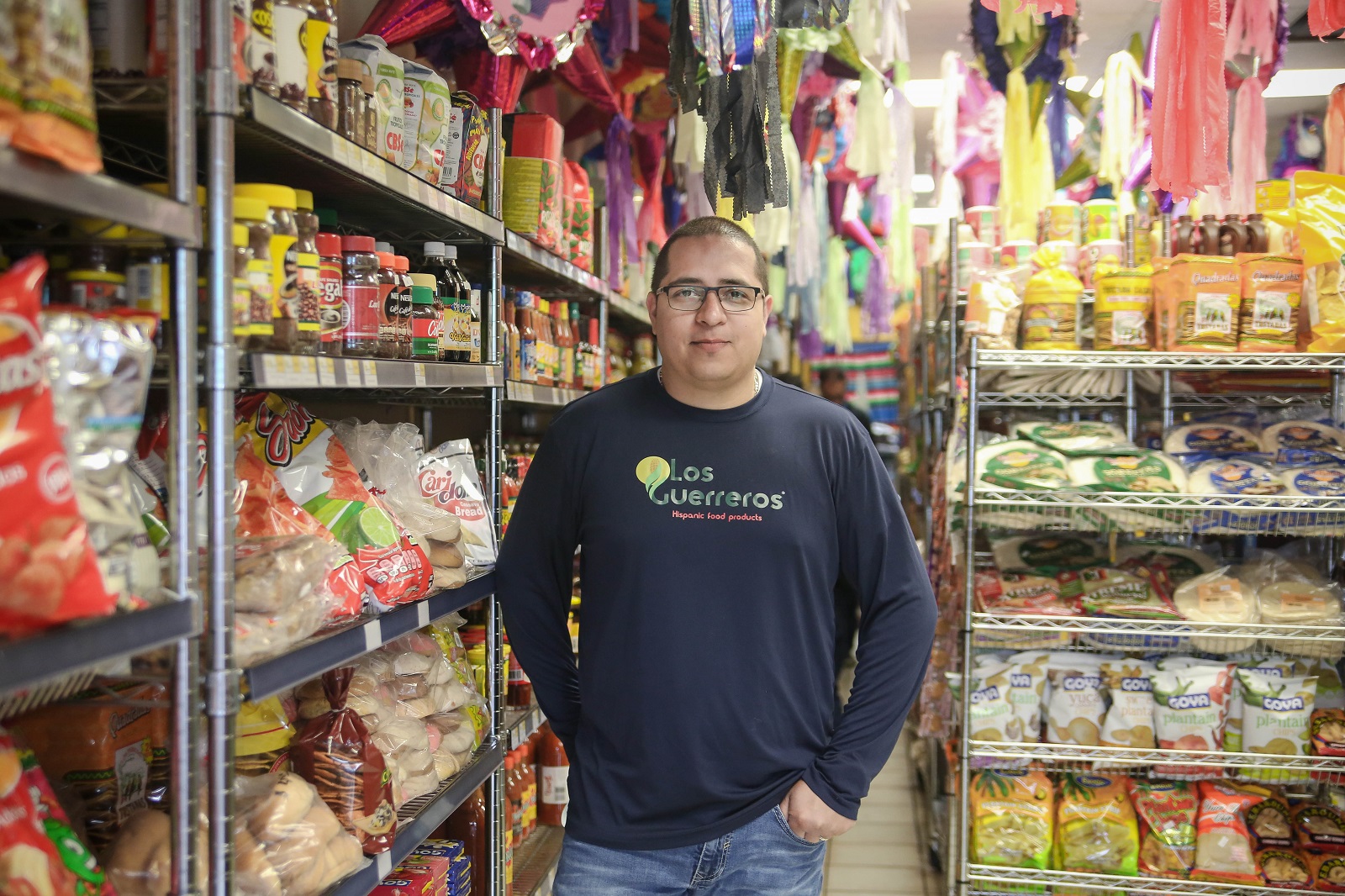
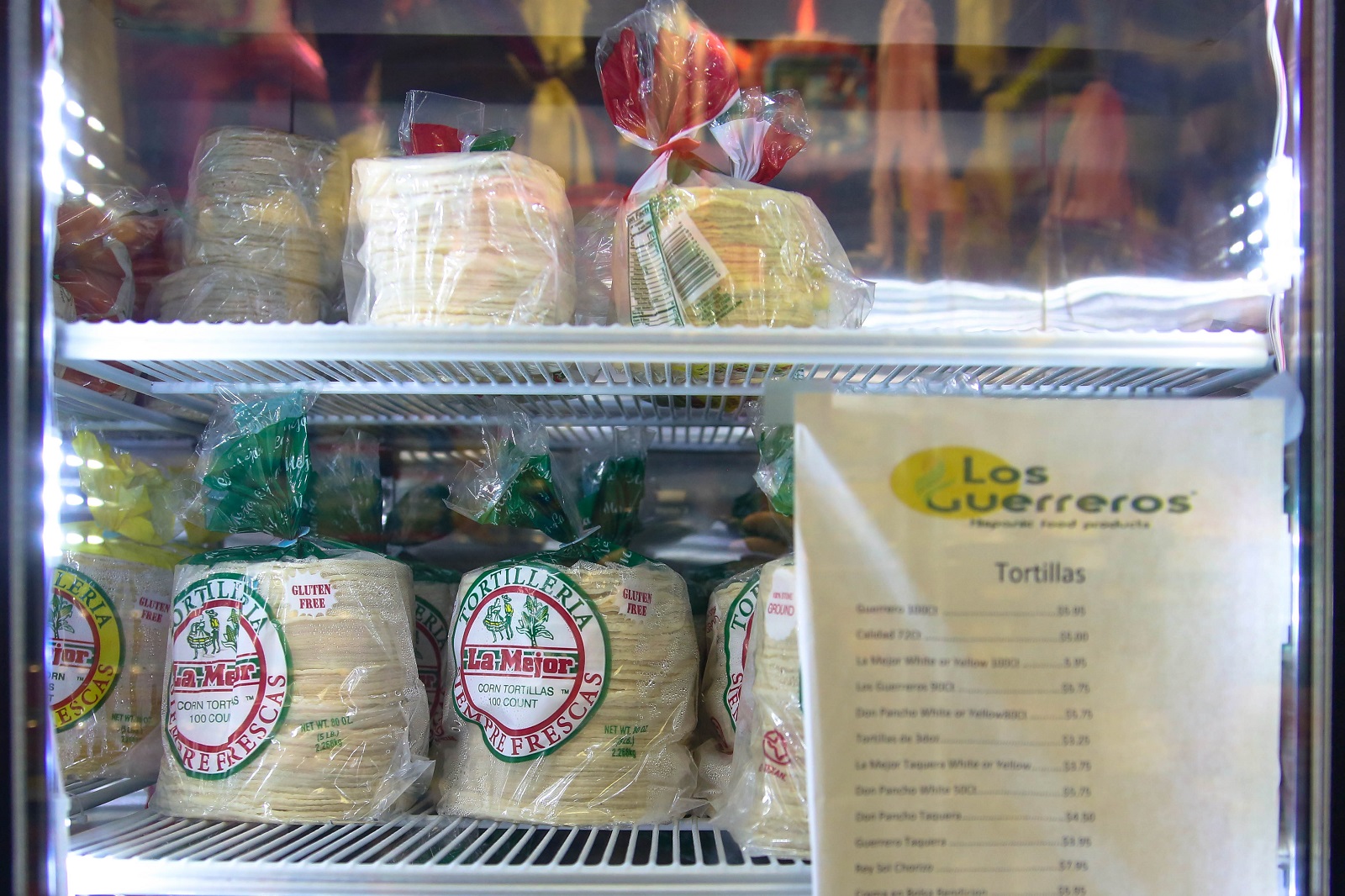
You might assume the lineup snaking along Kingsway is for one of the Collingwood neighbourhood’s many banks, but a longer look reveals that the happy customers aren’t leaving with cash in hand, but corn tortillas.
Los Guerreros has been a Kingsway mainstay for 28 years. Its newer Langley location, after seven years on the city’s downtown strip, has become a fixture too.
The two Hispanic groceries are small and narrow, and so packed with goods that you can barely see the walls. Peppers from anchos to chipotles. Spices from cumin to Mexican oregano. Conchas made in house. Sweets, salsa and sauces. Tamales in the freezer.
There’s a bit of all Latin America here: arepas from Venezuela, pupusas from El Salavador, spicy ají amarillo paste from Chile.
“Everything is moving,” said Roland Zavaleta, who manages both stores. “Lots of tortillas, lots of beans — they were going like crazy. The U.S. dollar is increasing, so in some cases we have to raise prices a little bit because of that exchange rate, but we’re trying to keep it the same as they were for people.”
Everyone from the foodie chef to the foreign worker looking for a specific Hispanic ingredient shops at Los Guererros. Langley in particular is home to a large population of workers from Mexico who arrive in the city to work on its farms. Many long for a taste of home and stock up at the store.
“It’s a big population,” said Zavaleta of the workers. “They’ve been sending one person to come out, or they’re coming in small groups.”
At the Kingsway Guererros the city has removed some street parking to give those in line more room. Customers wait patiently for their turn to squirrel in for their visit, because they know they’ll be taken care of.
“It’s been go, go, go the last few weeks,” reflected Zavaleta. “We’re giving everything to the customer. It’s become a lot harder to find stock, especially all the imported stuff from Mexico and California. They have some local issues getting products out, with some factories closed. When we run out, we try to find a different supplier. But it hasn’t got bad yet. We’re riding it along. We get a lot of thank yous for staying open, for having a certain product, and it’s very rewarding.”
Hannam Supermarket
Addresses:#106-4501 North Rd., Burnaby
#202-1323 Robson St., Vancouver
#1-15357 104 Ave., Surrey
#6350 196 St., Langley City
“This just came in! It’s new in Canada,” said Leona Park, proudly holding up a package.
It’s a frozen bag of stew: chicken and ginseng with sticky rice, jujube dates and chestnuts. Called samgyetang, it’s a healthy Korean classic and perfect for times like these.
Hannam Supermarket, where Park is a manager, has always made items that are ready to eat or ready to cook — it’s like Safeway roasted chicken or organic spring mix but for the Korean crowd.
There’s the banchan, side dishes from seaweed to pickled radish, and tubs of stews made in house, from galbitang with short ribs to doenjang-jjigae made from soybean paste.
“Everything’s made in store,” said Park, pointing to the bustling kitchen.
With the virus having killed restaurant dining for the time being, more customers are grabbing these ready-to-go products, according to the supermarket’s head office.
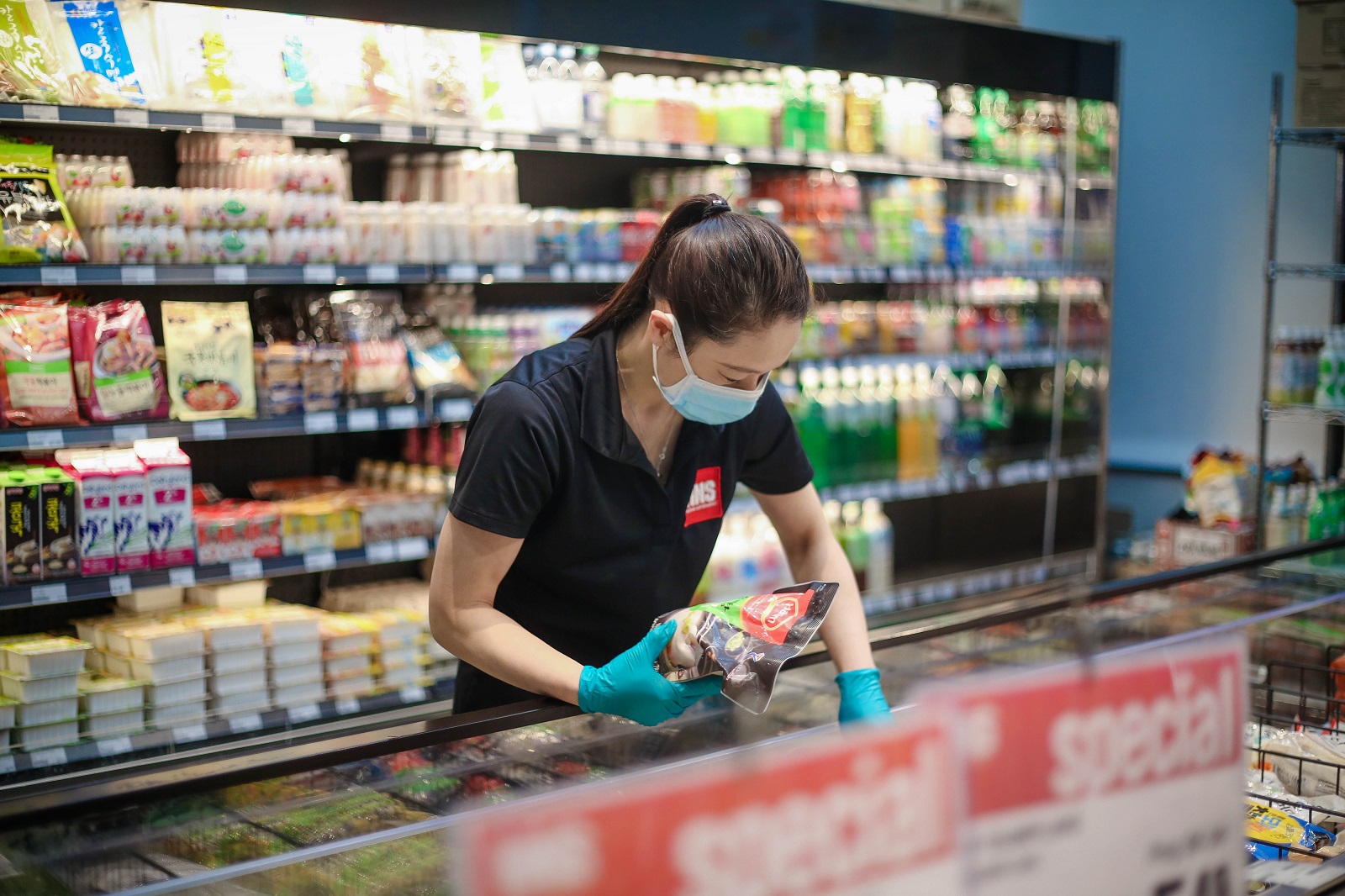
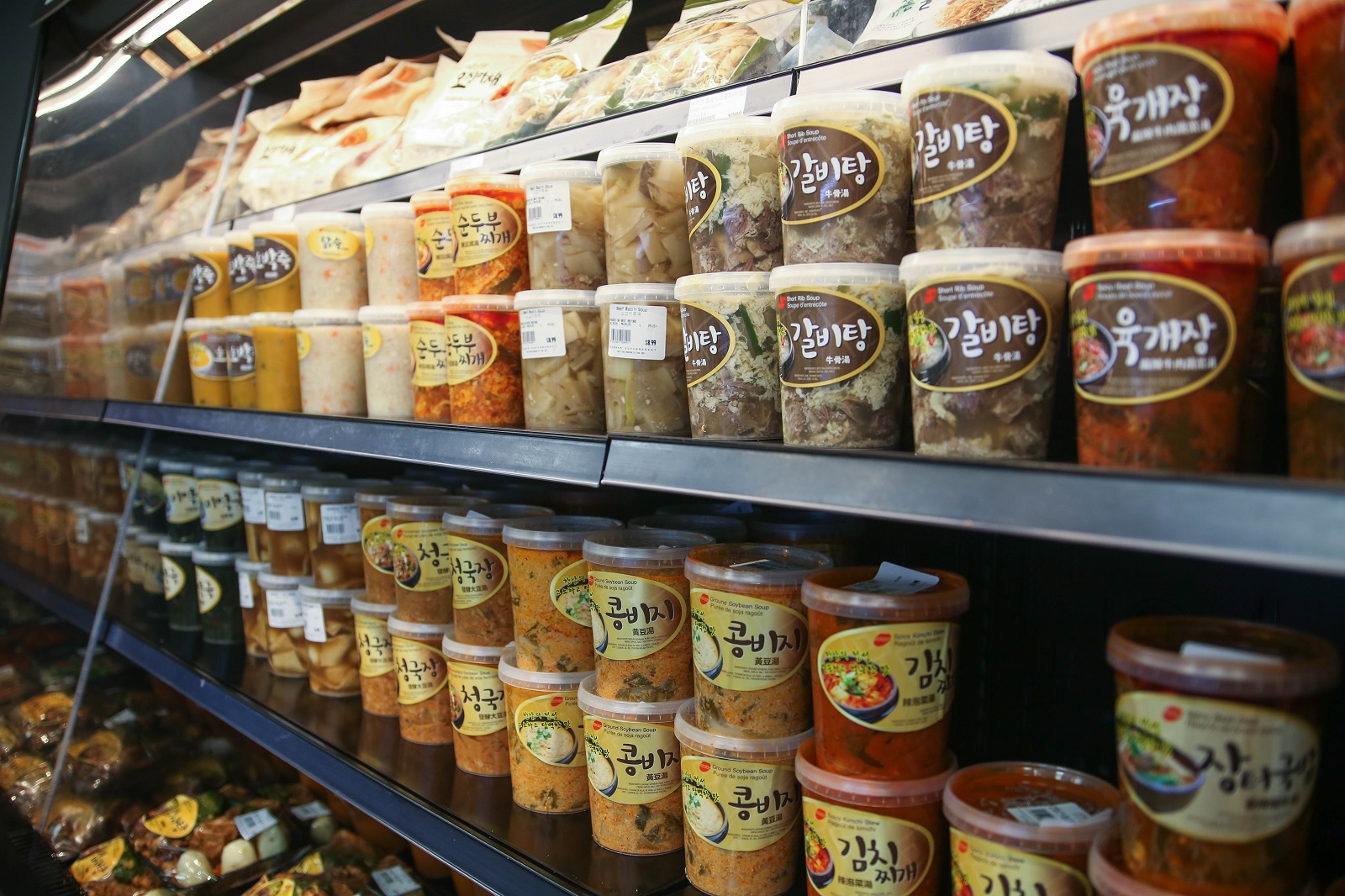
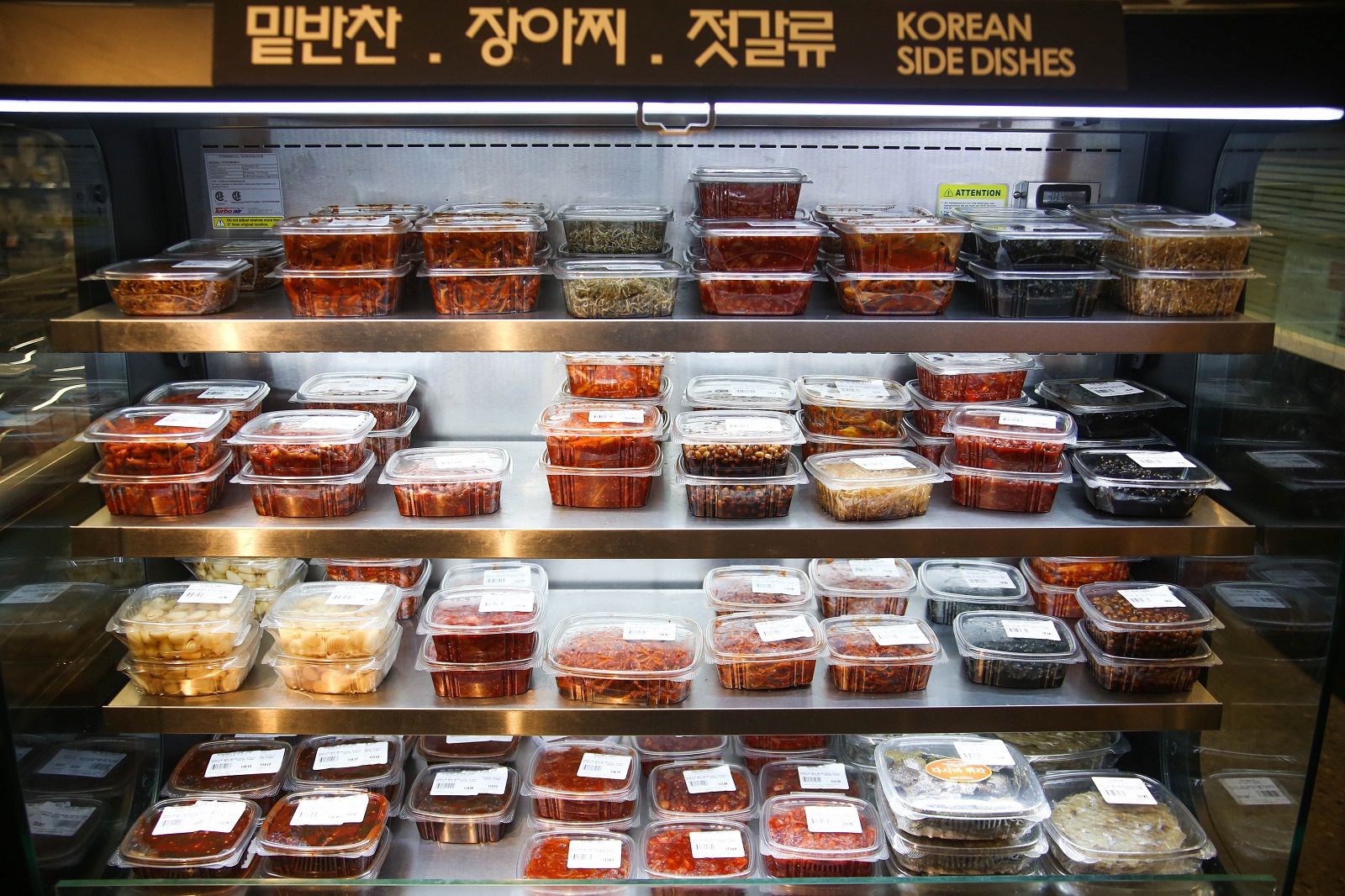
Hannam Supermarket has offered such fare since it first opened in 1998 on North Road at the Burnaby–Coquitlam border, helping spark the growth of a bustling suburban Koreatown and feeding the families that settled nearby.
Park worked at the area’s popular Insadong restaurant before making the switch to the supermarket on the other side of the road. When Hannam decided to expand to downtown Vancouver in 2018, Park became its store manager.
“A lot of workers used to come in to eat,” said Park, pointing to a closed-off dining area with a view of Robson Street where customers pressed pause on downtown life to tuck into Hannam’s sushi or a meal tray.
The supermarket also has branches in Surrey and Langley, in step with the growth of the Korean community.
At all locations, there is a rigorous effort to stay clean. Upon arrival, employees are required to have their temperatures checked, and wear masks and gloves at all times. Every hour, they wash their hands, and must sign a list when they’ve done so.
Sabzi Mandi
Addresses:#106-12568 72 Ave., Surrey (Newton)
#101-13753 72 Ave., Surrey (Newton)
#13208 80 Ave., Surrey (Newton)
#15299 68 Ave., Surrey (Fleetwood)
#31831 South Fraser Way, Abbotsford
#7565 Sixth St., Burnaby
#20-1708 Bowen Rd., Nanaimo
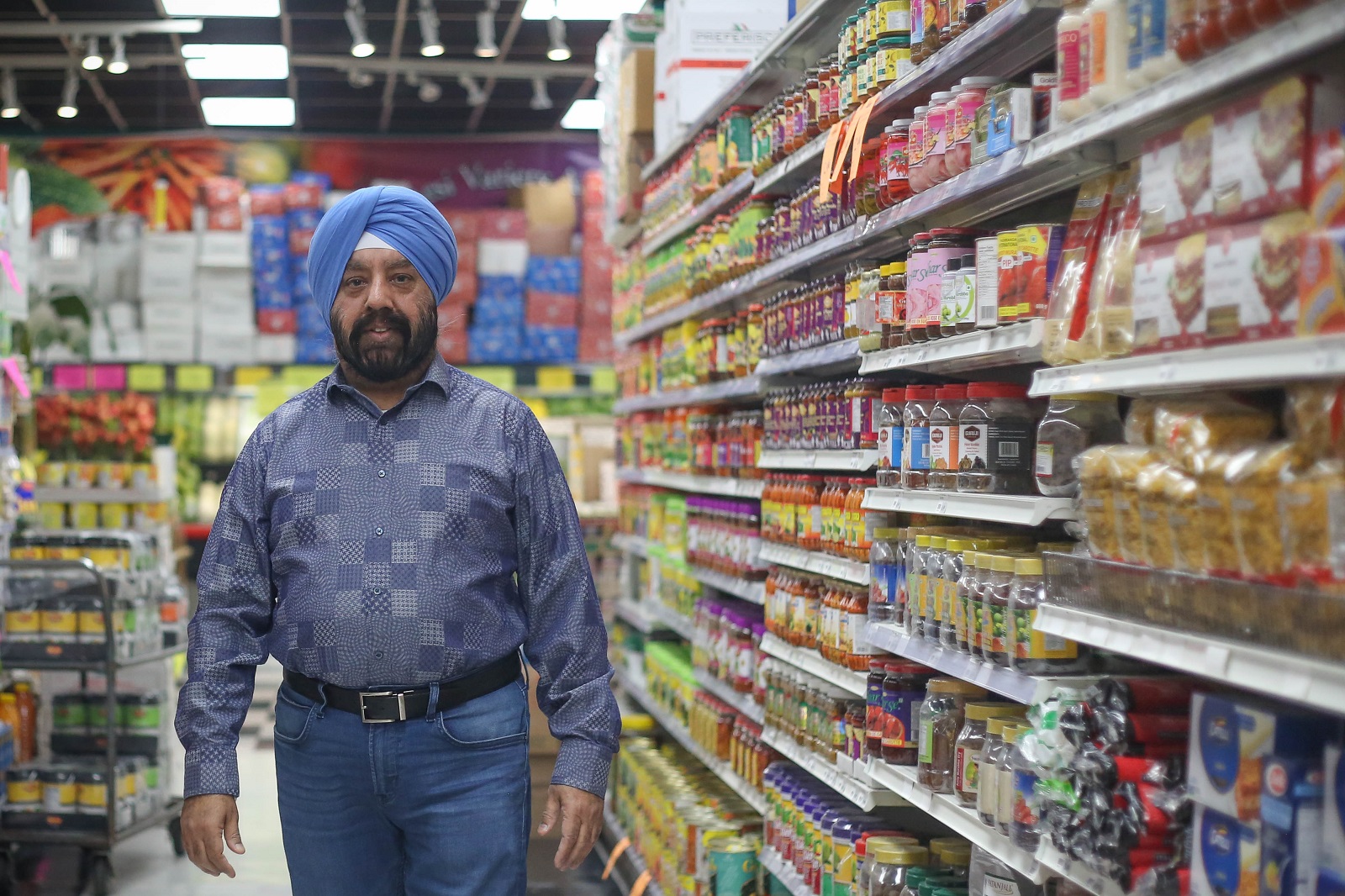
At the beginning of the pandemic, it was the flours and lentils that people were after.
“It was quite crazy,” said Ravinder Narula, owner of the Sabzi Mandi supermarkets. “Some people were grabbing three or four [bags].”
But things have calmed down, with stock floating at only about 10 per cent less than what it was before the pandemic.
“It’s almost back to normal,” said Narula. “The issue is with a few items that come from India because of the flights right now. We do have substitutes in California for things like okra, so it’s still OK.”
Narula’s first Vancouver store, which he bought in 1991, was on Main Street, in the area known as Punjabi Market or Little India.
“Sabzi mandi simply means market,” said Narula. “It’s a Punjabi word, an Indian word — everyone knows what it means. Every village, every town, every city has one.”
And so it is with the Indo-Canadian communities of Metro Vancouver. Sabzi Mandis have since opened across Surrey and in Burnaby, Abbotsford and Nanaimo.
Aside from food, they also sell cookware and appliances, such as roti makers and Sumeet food grinders. There’s a Western Union at each store too, for immigrants to send money home to loved ones.
With COVID-19, masks are on and glass screens are up at the supermarkets. Extra staff have been called in. The bulk bins have been sealed, with goods like chickpeas, nuts and seeds packaged for customers instead.
“People are definitely cooking more,” said Narula as he walked through the shelves on a recent Wednesday. “Everyone has to have all three meals at home.”
Caribbean Market
Address:#804 12th St., New Westminster
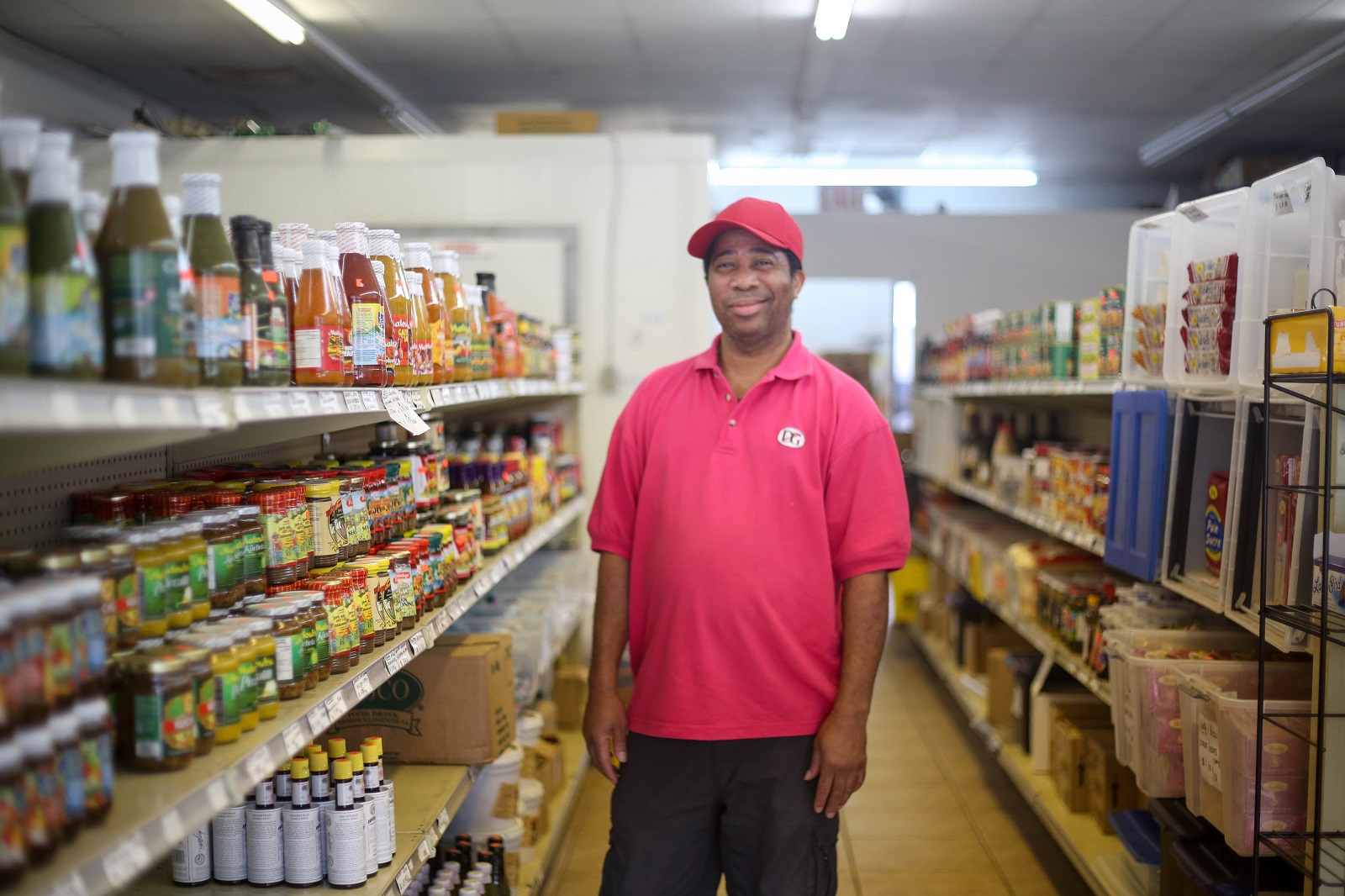
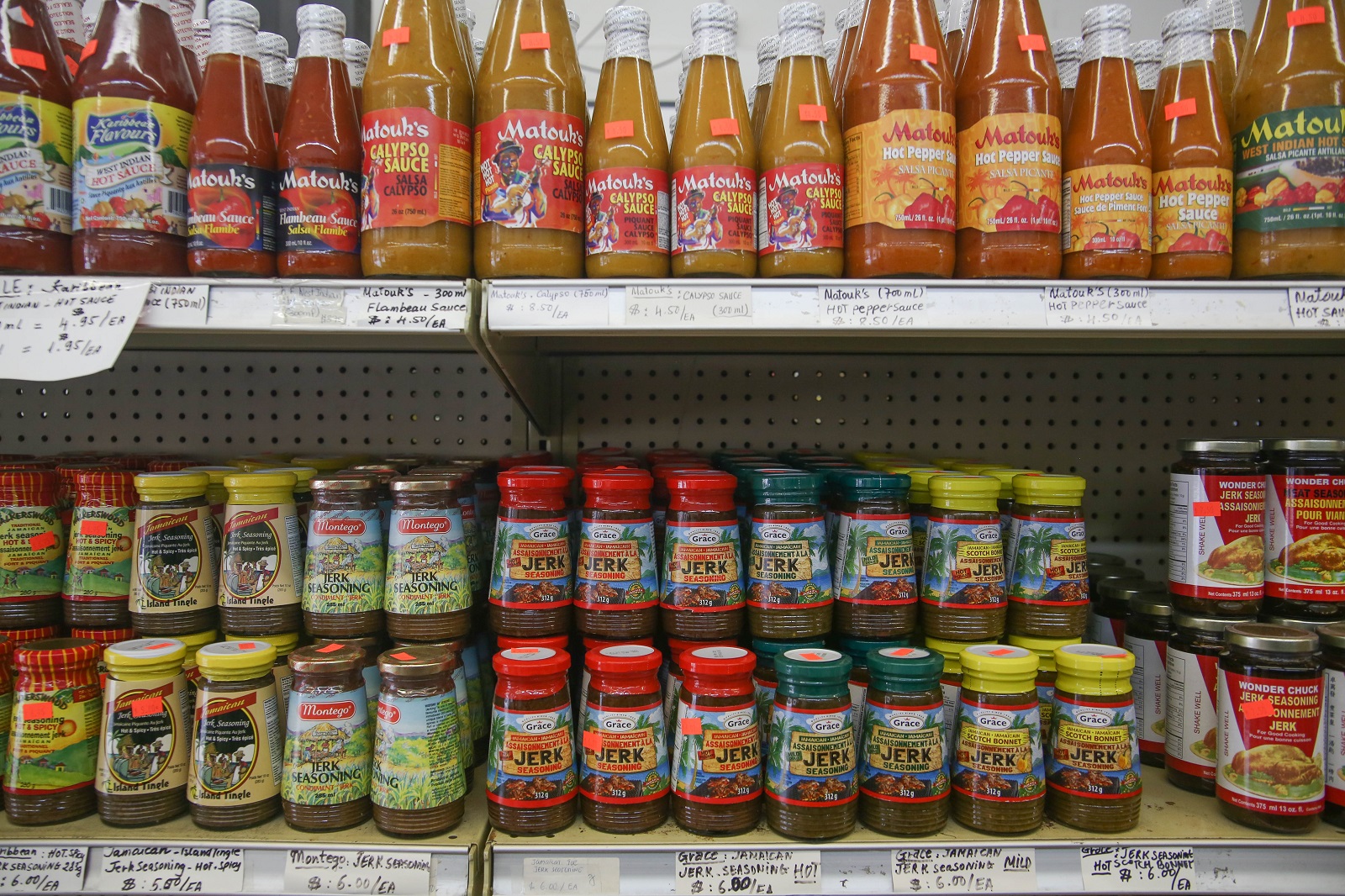
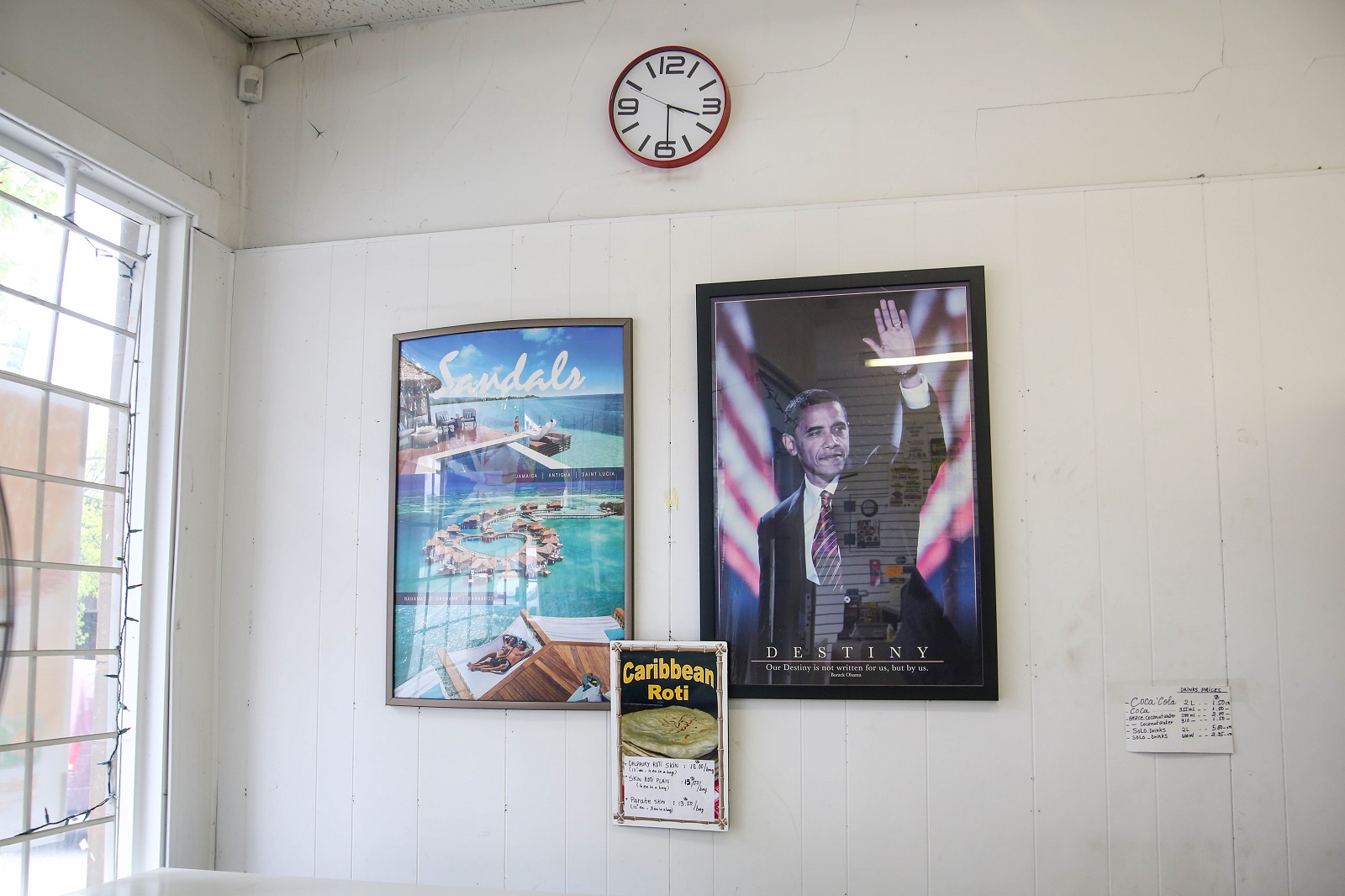
For 10 years, Martin Waite’s Caribbean Market has been on New Westminster’s eclectic 12th Street shopping strip, sandwiched between a salon and a tattoo parlour. Nearby is a guitar shop, an Ethiopian convenience store, a Trinidadian roti restaurant and one of the city’s last Chinese-Canadian diners.
“I tried to stock up ahead of this when I started to hear about [COVID-19] in the news, and it’s great because everyone is stocking up!” said owner Martin Waite.
The supply of Caribbean produce such as yams, pumpkins and bananas has halted, though, because “there are no planes coming in,” said Waite.
But there are still frozen goods like salted cod, and jerk sauces aplenty. The selection of spices attracts more than just the local Caribbean community visiting the market.
Waite has noticed his customers, holed up at home, have an increasing hankering for treats. He carries Caribbean sweets like coconut toffee but also Purity brand cookies from Newfoundland.
One sad sight, though: patties are no longer sold from the warmer by the till.
African Superstore
Address:#105-10761 King George Blvd., Surrey
When George Baah arrived from Ghana, the only place where he was able to find African foods was near the Caribbean products at 7 Days Seafood & Grocery on Surrey’s King George Boulevard.
When he and his wife Tina decided to open a business of their own, they knew they wanted it to be in that area “so that people know there’s an African community here,” he said.
In 2005, the Baahs opened African Superstore right on King George, in a building shared with a BC Liquor Store. Their goal was to stock the goods that “you can’t find anywhere else.”
Today, immigration has created B.C.’s largest Black population in Surrey and the store has a big market as people seek familiar products. “For new immigrants, it takes them a while before they adjust to western food,” Baah said.
Boxes of Ghanian yams greet you at the entrance; behind them, even more yams, but the pounded variety, in bags taking up an entire shelf. Other staples include smoked fish and palm products.
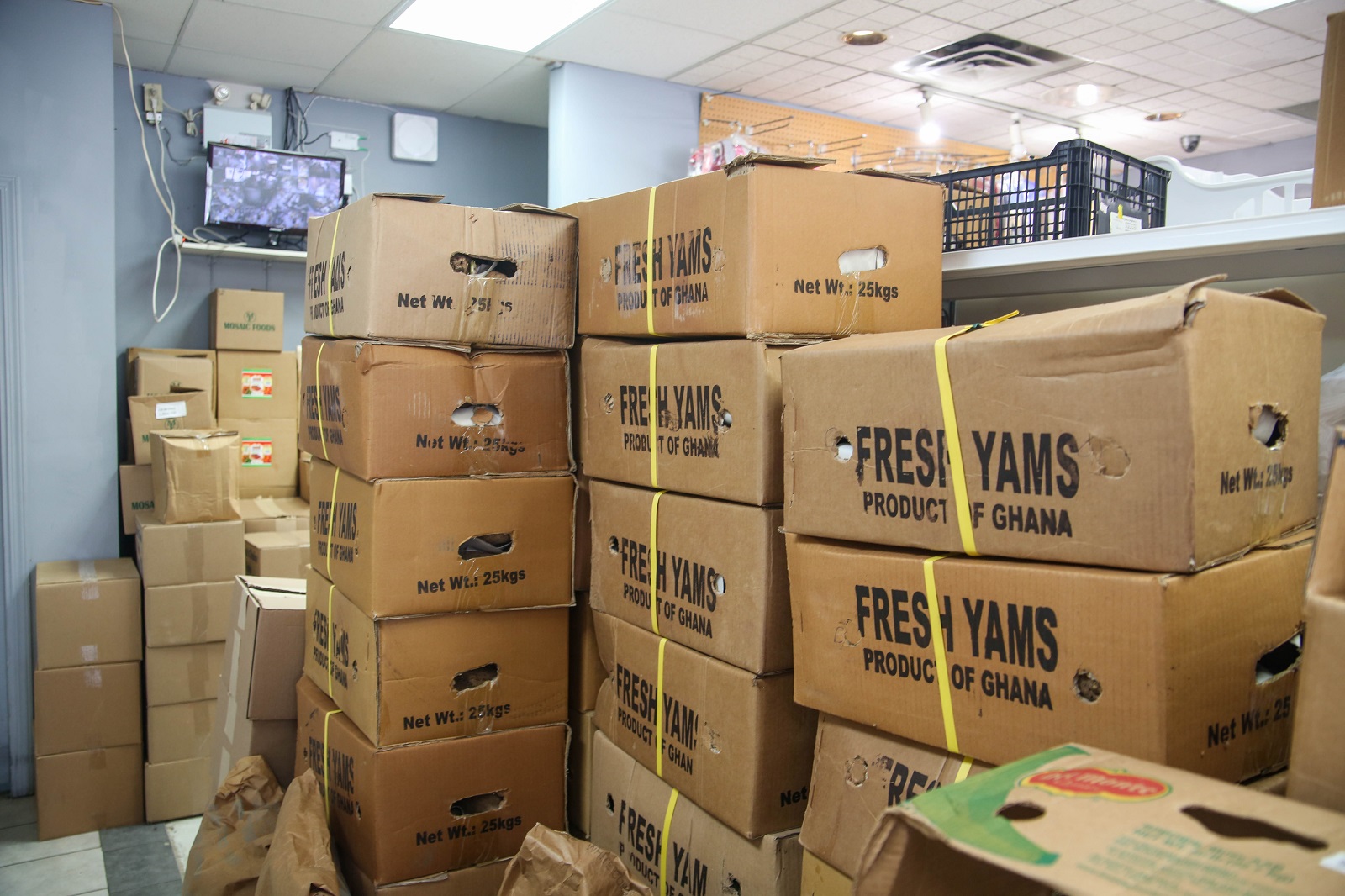
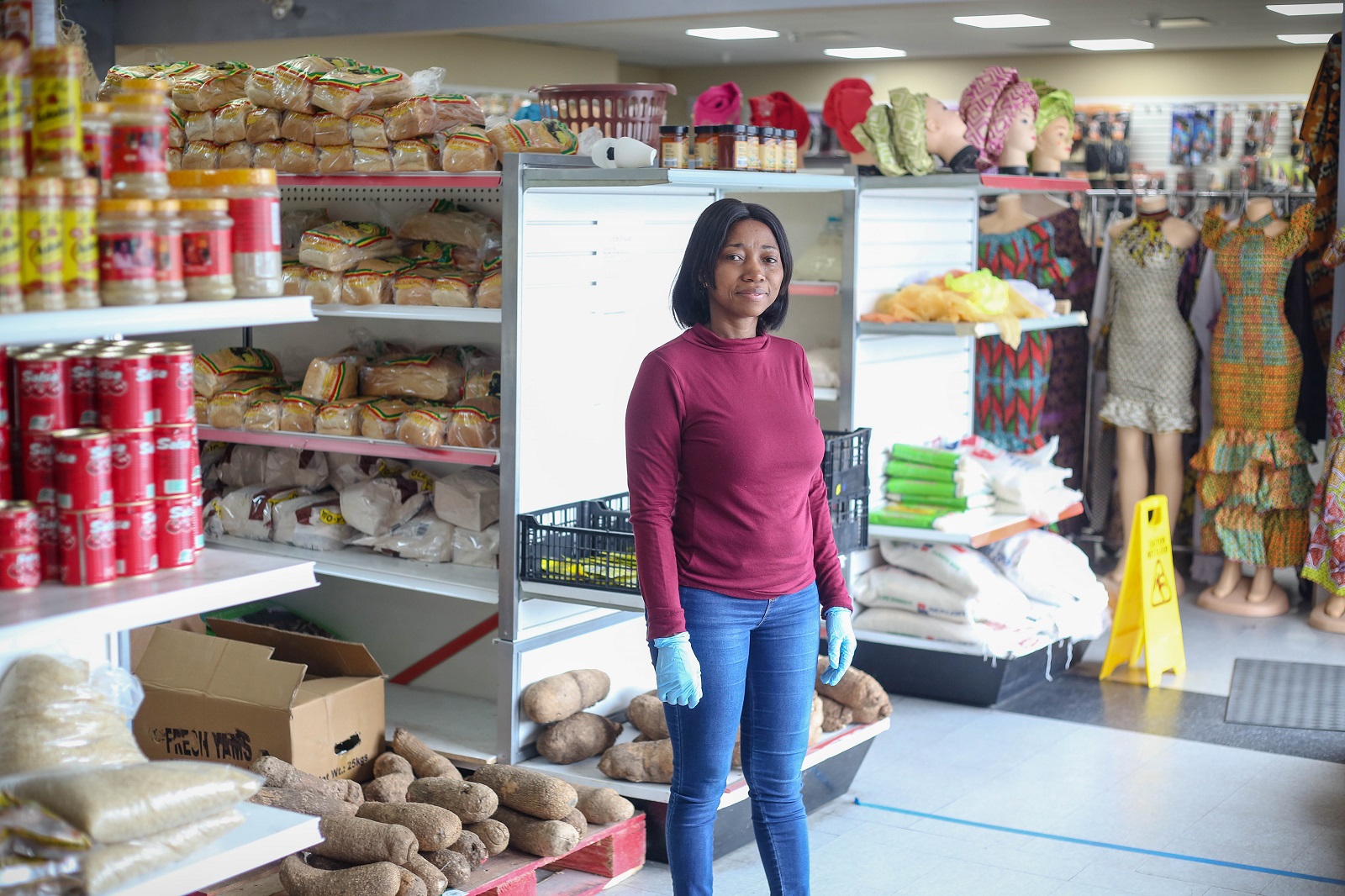
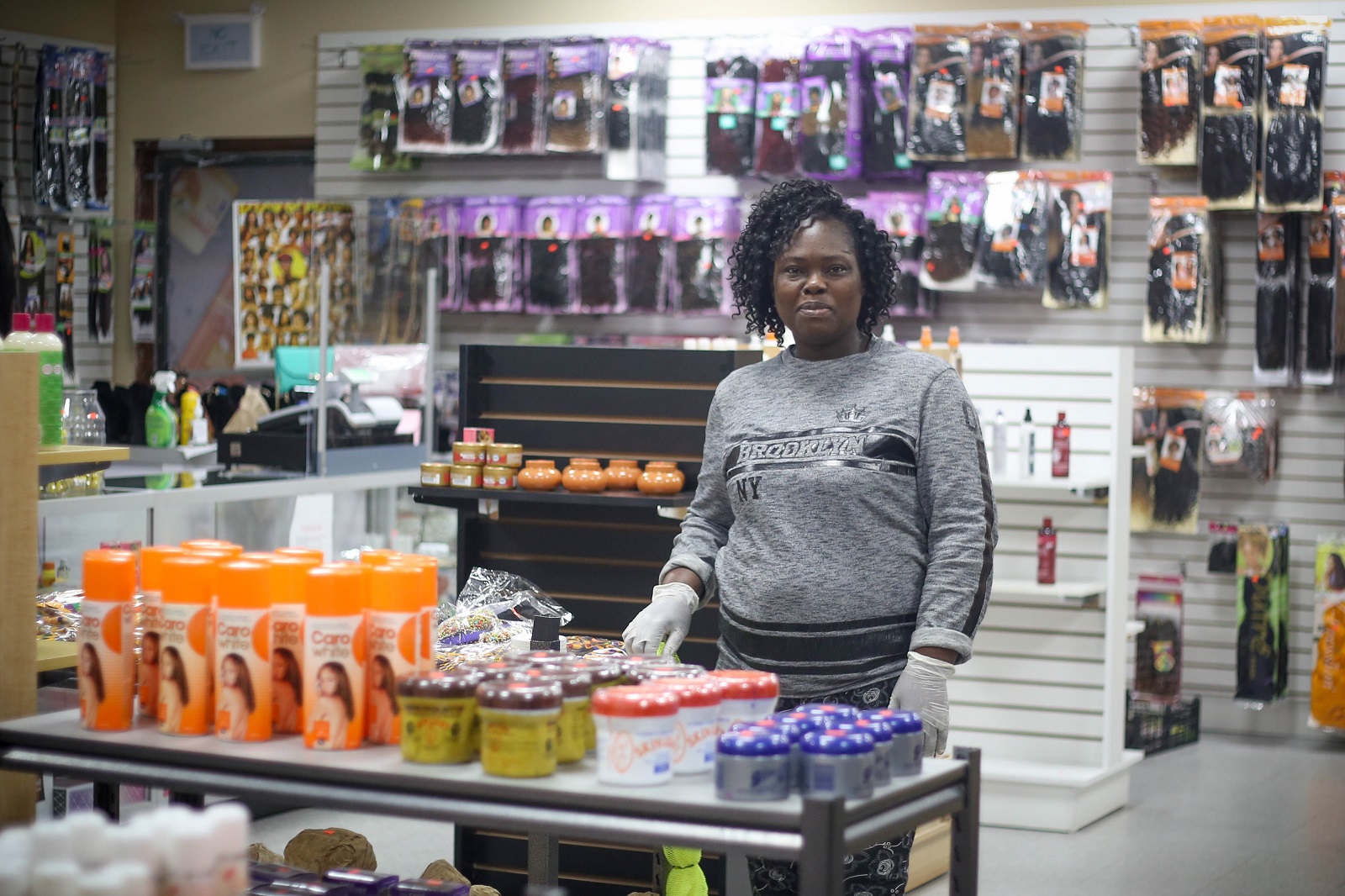
“We haven’t been able to import,” said Baah. “Right now, we buy from others who have imported, like in Toronto, because they have big warehouses, but sooner or later, they’re going to be running out of their reserves. Hopefully things will settle down soon.” ![]()
Read more: Food, Coronavirus




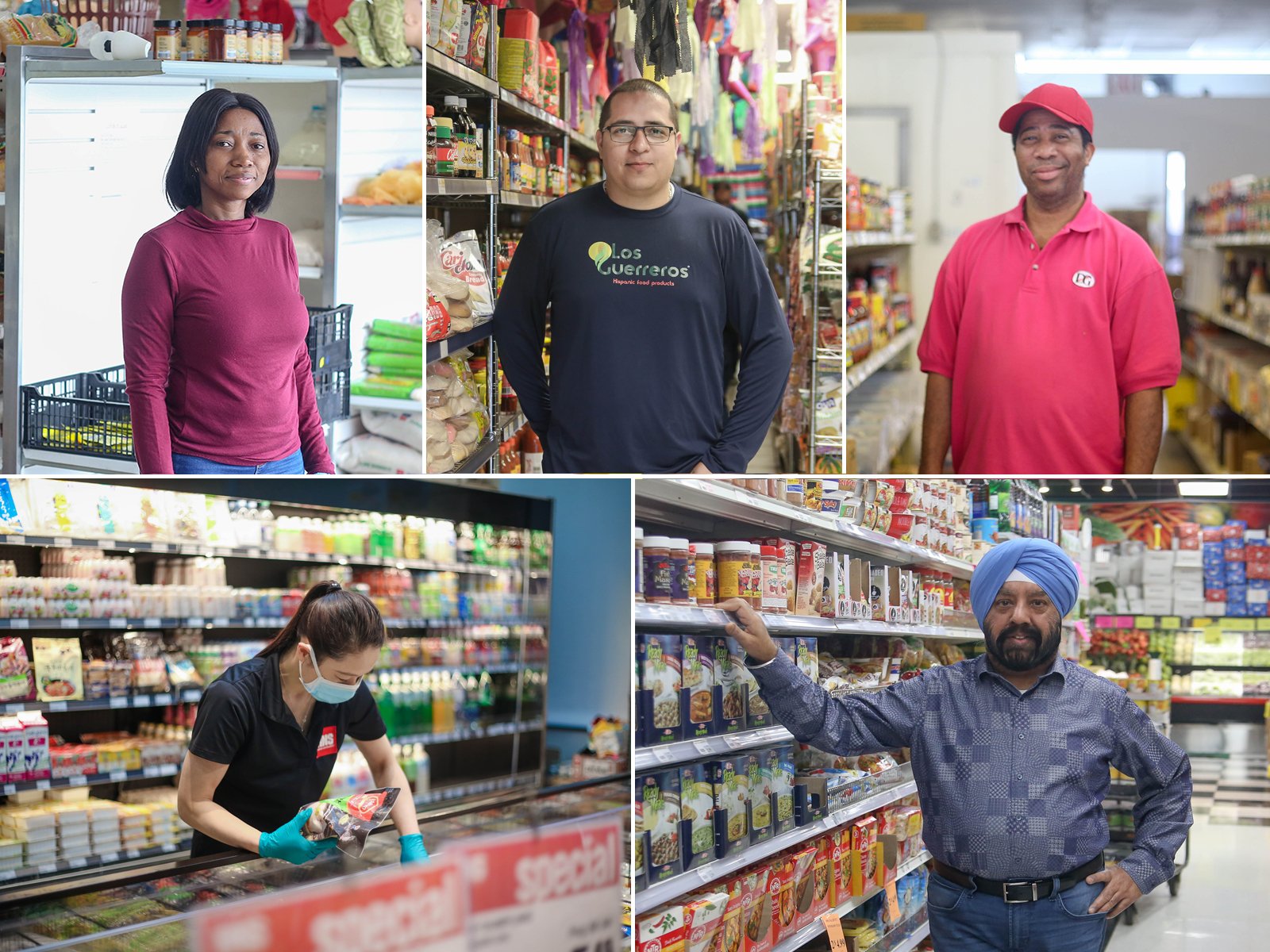












Tyee Commenting Guidelines
Comments that violate guidelines risk being deleted, and violations may result in a temporary or permanent user ban. Maintain the spirit of good conversation to stay in the discussion.
*Please note The Tyee is not a forum for spreading misinformation about COVID-19, denying its existence or minimizing its risk to public health.
Do:
Do not: